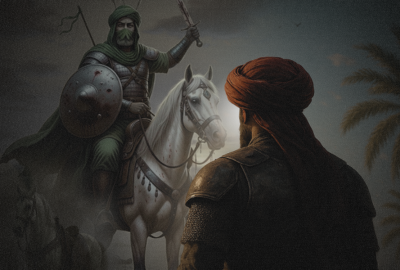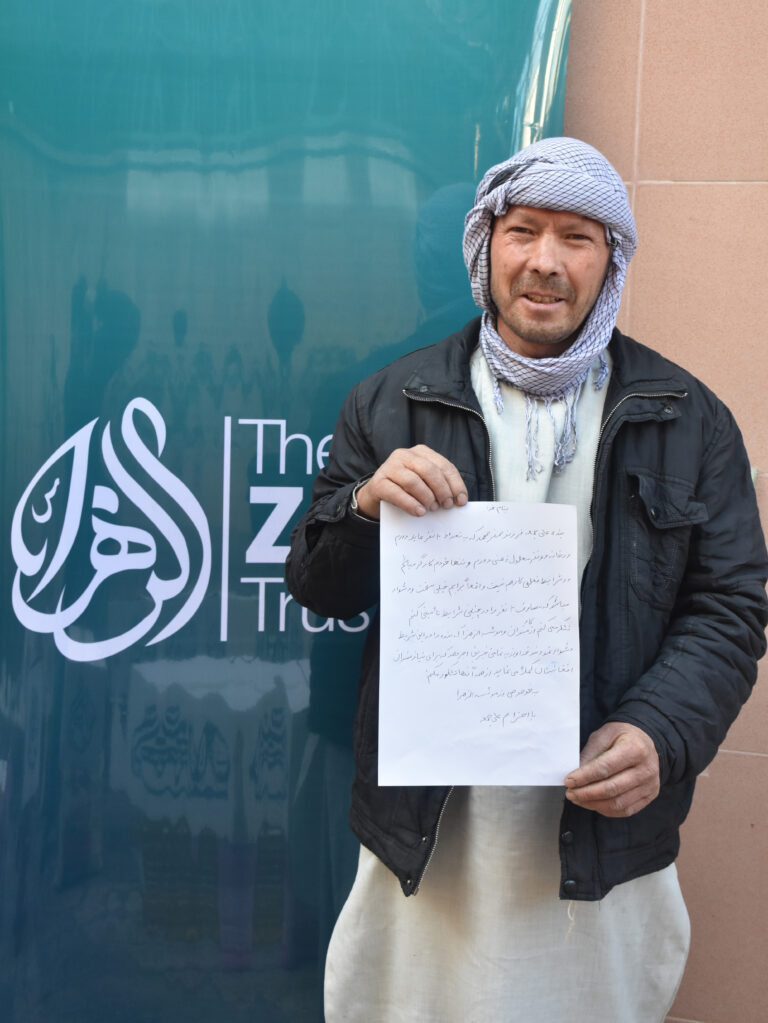Hurr: A Return to Truth and Faith
In the Battle of Karbala, many beloved believers gave their lives for Imam Hussain (as).
Among them is Hurr ibn Yazid al-Riyahi, a man whose transformation on the Day of Ashura turned him from a commander in the army of tyranny to a martyr for truth.
His story is not just about redemption – it is a reminder that no soul is beyond return, and that the call to enjoin good and forbid evil is a duty upon us all.
At a Crossroads
At first, Hurr played a role in directing Imam Hussain’s (as) family towards the desolate plains of Karbala as the commander who initially intercepted the Imam’s (as) caravan.
But as the events unfolded, he found himself conflicted. The night before Ashura, Hurr watched as Yazid’s army prepared to kill the grandson of the Prophet (saww) – and he realized he had a choice.
He could obey a tyrant for worldly safety, or he could walk away from everything he knew to stand with justice.
This was a choice between enjoining in the good, or allowing evil to prevail.
The Holy Quran states:
وَلۡتَكُن مِّنكُمۡ أُمَّةٌ يَدۡعُونَ إِلَى ٱلۡخَيۡرِ وَيَأۡمُرُونَ بِٱلۡمَعۡرُوفِ وَيَنۡهَوۡنَ عَنِ ٱلۡمُنكَرِۚ وَأُوْلَٰٓئِكَ هُمُ ٱلۡمُفۡلِحُونَ
“There should be among you, O believers, a group of the learned and sincere persons who should be calling the people towards goodness, commanding the right and forbidding the evil – they are the successful ones.” (Quran 3:104)
In that moment, Hurr listened to the call of the Quran.
Learn more about enjoining in what is right and forbidding what is wrong here.
Freedom in Faith and Loyalty
With sincerity in his heart, Hurr crossed the battlefield with a plea for forgiveness.
Imam Hussain (as) welcomed him without hesitation. He famously said:
“Surely, you are free as your mother named you.” – Imam Hussain (as)
That name Hurr, meaning “free”, had never been more fitting. Hurr’s act of repentance was a fulfillment of the Quranic principle to forbid evil, even when that choice requires sacrifice.
Martyrdom for Truth
Hurr’s story didn’t end at repentance. It continued on the battlefield, where he fought – and died – defending justice and truth.
Learn more about the Battle of Karbala here.
His martyrdom was an act of faith, and of choosing to enjoin what is right even when the cost was his life.
Hurr not only showed loyalty for Imam Hussain (as), but he also followed in the message of Prophet Muhammad (saww) and showed true faith in Allah (swt).
“He who enjoins right and prohibits wrong is the vicegerent of both Allah and His Messenger on the earth.” – Prophet Muhammad (saww)
Redemption Is Always Possible
Hurr’s journey shows us that it is never too late to return to Allah (swt). It is never too late to choose justice over silence.
Even in the final hours of life, Hurr chose righteousness.
Read more about how you can also choose righteousness – and do good for those most in need.
Honor the Legacy of Hurr
The legacy of Karbala – and of heroes like Hurr – lives on when we act with compassion, faith, and justice.
Honor the sacrifice. Keep Karbala alive.
FAQ
Hurr ibn Yazid al-Riyahi was a commander in Yazid’s army who initially confronted Imam Hussain (as) during his journey to Karbala. However, moved by Imam Hussain’s (as) message and his own conscience, Hurr later defected from Yazid’s army and joined Imam Hussain (as). He was martyred on the Day of Ashura, remembered as a symbol of repentance, truth, and moral courage.
Hurr’s story is a powerful reminder that it’s never too late to repent and return to the path of truth. His journey demonstrates the Islamic principles of tawbah (repentance), enjoining good, and forbidding evil – central tenets in the Quran and Hadith. His life is a timeless example of courage, sincerity, and faith.
Hurr exemplified the verse in Surah Aal-Imran (3:104), which calls on believers to stand up for what is right and oppose injustice. By switching sides from Yazid’s tyrannical army to the Imam Hussain (as), Hurr actively chose to forbid evil and support truth – fulfilling this Quranic command in both word and action.
Hurr’s repentance is significant because it illustrates that sincere repentance is always accepted by Allah (swt), regardless of past mistakes. His change of heart and willingness to sacrifice his life for justice shows the transformative power of faith, especially in the face of overwhelming pressure and danger.
We can honor Hurr’s legacy by standing up for justice, supporting the oppressed, and making ethical choices in our daily lives. Donating to causes that support vulnerable communities, like The Zahra Trust’s humanitarian projects, is a practical way to continue the spirit of Karbala – choosing truth, compassion, and dignity over silence and inaction.










